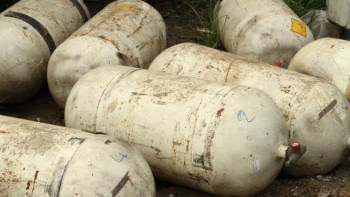Values-based child protection system

Law, ethics, values and morality forms an integral part of the society. Law is omnipresent whereas ethics, values and morality are the inner instinct. Their blend is a requirement for the amicable survival of the society especially for the protection of the children. In Bangladesh a large number of children are deprived of their basic human rights due to unacceptable health, nutrition and education as well as social conditions. In addition, recently children are facing violence in a range of settings including at home and in the family, in schools and in care and justice systems, in workplaces and in the communities.
Although morals and laws have the same goals but lack of professional ethics of concerned authorities, the children did not get improved social services from the judges, prosecutors and investigators. The consciousness is reflected in the international legal instruments as well as in the Constitutions of Bangladesh to protect children against neglect, cruelty, exploitation and to provide equal opportunities to children for development. Furthermore, the government has been enacted the new Children Act in 2013 on the basis of the Convention on the Rights of the Child (CRC) 1989 and adopted the provisions for child-friendly justice and different kinds of professional responsibilities in a number of settings, such as, child help desks in the police station, separate children's court and child development centres, national child welfare board and probation officers. In practice, lack of new Children Rules or guidelines and lack of coordination among concerned ministries; these mandates are not implemented yet. Committed personnel with requisite skills, knowledge and ethical approach are one of the major challenges in treatment of child offender. For implementation of these provisions need enormous financial and logistic supports from the government.
Child protection systems comprise the set of laws, policies, regulations and services needed across all social sectors especially social welfare, education, health, security and justice to support prevention and response to protection related risks. In this context, ethics, values and morality have been playing phenomenal role in nourishing and building social relations and growth of society especially in the management of child protection. Identifying responsibilities in laws is essential to address most of the human rights issues as they directly deal with people and the societies they live in. Issues of crucial importance such as protection of children's rights, require an active participation from the individual member, family, community and society as a whole along with the processes of law.
At present the most important matters for the government are: setting up the Child Affairs Desks and the appointment of Child Affairs Police Officers in the police stations, establishing sufficient numbers of safe homes and certified institutes, Gazette notification setting up the Children's Courts and framing of Rules. Rules are most urgently needed, as without them many of the new concepts, such as diversion, family conferencing, alternative care, dispute resolution etc. cannot be put into practice. It is also important to train up the persons concerned in the children justice system so that proper implementation of the new law can be ensured. Many of the aspects dealt with in the new statute are inter-linked. The judiciary, law enforcing agents and the parents and guardians of children themselves, must be sensitised to the provisions of the Convention on the Rights of the Child and the laws protecting children in Bangladesh. Furthermore, children need to be protected from vested interest groups and acts of impunity towards children by those purporting to protect society must be dealt with seriously and in accordance with the law.
There is needed the human rights-based approach and emphasises prevention as well as the accountability of governments. Governmental commitment to fulfilling protection rights: includes social welfare policies, adequate budgets, public acknowledgement and ratification of international instruments. As time has passed, the child protection system has changed throughout the world. The stakeholders, the family, the court, the detention facilities and programs, and the community are responsible for the adoption of the new change. A sound child protection system fundamentally require improved social services, specialised assistance, child-centered initiatives and committed personnel with requisite skills, knowledge and experience. It is also important to train up the persons concerned in the child protection system so that proper implementation of the Children Act 2013 can be ensured. Many of the aspects dealt with in the new statute are inter-linked. Therefore, a ethical approach must be taken by all concerned to ensure that the children of this country may achieve the fulfillment of their rights.
The writer is an Associate Professor of Law, Bangladesh Open University.


 For all latest news, follow The Daily Star's Google News channel.
For all latest news, follow The Daily Star's Google News channel. 



Comments